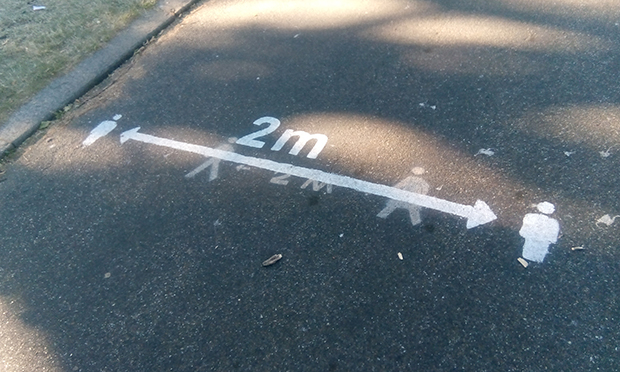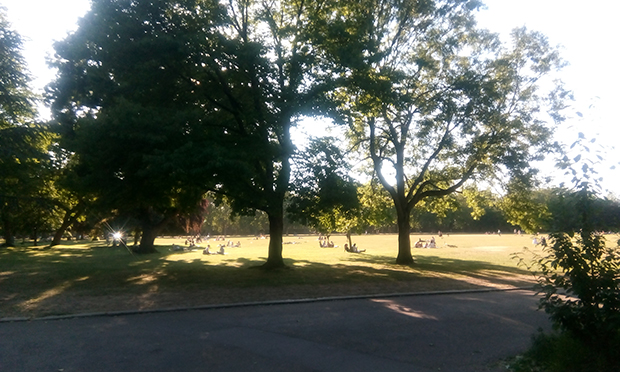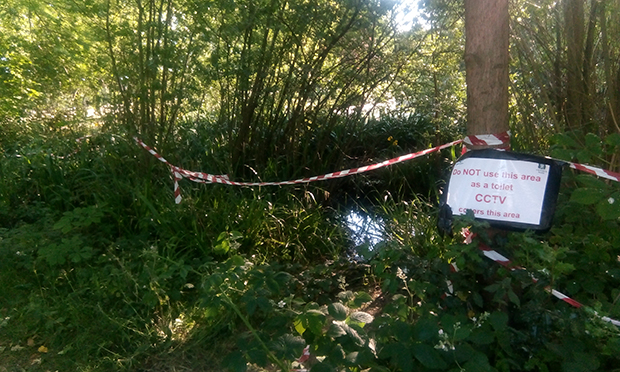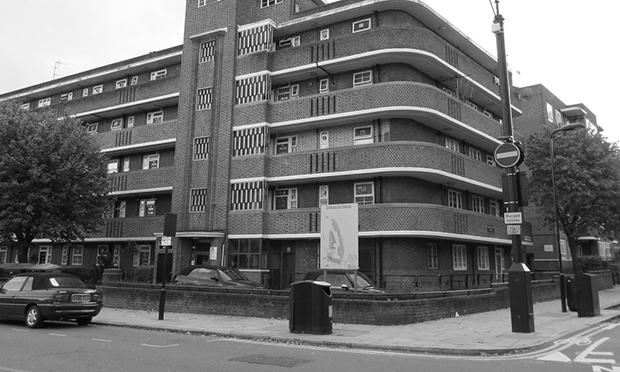Ben Mortimer: ‘I want to preserve the block WhatsApp group and people doing things for their neighbours’

It all seems like a long time ago now, and, at the same time, it isn’t the end.
Two weeks ago a pleasant noise started coming from the common outside my flats – the sound of people of varying ages enjoying being outside. But it wasn’t what you’d expect to hear on an evening in normal times. It was noisier.
In normal times, even in May, the common’s usually pretty quiet. People go to Victoria Park, or the pub, or have an evening at home. The common is busy, and the noise is there, because now, at least in the evenings, the common is Victoria Park, which, until this week closed at 5pm.
The common is now the pub, which is closed all day and all night. The common is now an evening at home for people who can’t stand another evening at home. The noise coming from the common is strange because it’s part of the lockdown, the sound of people adjusting, not a sign of the end of these odd times.
I estimate I’ve walked the circumference of the common nearly 200 times in the last eight weeks. Five times a night, six or seven days a week, for eight weeks. I’d traverse it on the way to the shops, being the best guarantee of keeping a two-metre distance from anyone for at least half the way. I’ve been extremely glad it’s there. I’ve been sick of it.

Photograph: Ben Mortimer
There’s now quite a beautiful sight in the evenings in Victoria Park. Away from the crowded part by the gates, there’s a wide expanse of people sitting in twos, talking to each other one on one and, often, drinking, with a space between each pair. It’s a strange flourishing of intimacy these unusual circumstances have generated, in which three isn’t only a crowd but actually illegal. It’s ephemeral too, likely to vanish soon, now gathering in small groups is officially allowed.
There was the strange time when sitting down in the park was illegal – I remember knackering myself walking laps of it at the weekend, not wanting to go home but desperate to stop walking; but you couldn’t back then: you could sit down in your house or walk in the park. If you want to sit down, go home.
That time took us from winter into summer without the usual break for spring. I clocked up my first 35, 70 laps of the common back in March, wearing a coat and jumper. Now I’ve been strolling in the park in the evenings in just a shirt. It’s June.
The Clap for Carers always caught me by surprise on these walks, at 8pm every Thursday. It was so strange, having seen nobody at all out and about, to become aware, so suddenly, at the striking of the hour, of everybody who lived nearby, as they erupted into clapping, cheering, banging of pots and pans, car horns, even fireworks going off. It was a bit like an England game in the World Cup, when the streets would also be quiet, with everyone inside watching the match invisible, inaudible, until England scored a goal.
About the second time this happened, I shrugged off my self-consciousness and joined in, standing in the middle of the grass on my own, clapping away.

What were people doing? A friend in New York had ordered the normal month’s supply of toilet paper before the rumours of stockpiling began. We looked at it enviously on Zoom, stacked up against her bathroom pipework.
Charlotte, who has a heart condition, had got out of London before the lockdown to stay with a friend in the countryside. They told me about their virtual dates going on into the early morning. I listened on, not all that enviously, and considered what an awful thing dating over Zoom must be – either desperately awkward or tremendously frustrating.
Charlotte says otherwise, and plans to continue their four in the morning chats with a person they have never met in the flesh, until such a time as their relationship can be pursued IRL.
“I miss choice,” said the friend in New York. “I miss the idea that I could do anything I wanted of an evening.”
Now it was all Joe Wicks, Tiger King, quizzes over Zoom. Digital versions of parlour games. Yoga, two metres distance, weird new brands of pasta and flour. Walking in the middle of the road, no more than two people in the shop at the same time. Being on mute. Not being on mute. I think your connection’s gone. The now familiar ingredients of the future compilation CD “Now that’s what I call lockdown 2020”. Wash your hands.
Kate, in Bow, ran – “more and faster and further” – and watched a lot of Friends.
Clare, in northern Italy, couldn’t leave the house at all – and it wasn’t even her house. She’d been staying at her boyfriend’s family home when Italy’s long and strict lockdown began. She told me she was looking forward to wearing her own clothes again when the restrictions were lifted, and about the cancelled plans: helping a friend make an allotment, going to South America, holidays, birthday parties, new jobs.
The friend in New York emailed first to say her wedding in July might not go ahead, and then again a few weeks later to say it was postponed until July 2021.
“A bit like everyone is saying, I like the fact that it’s made us slow down and rethink what’s actually important,” Clare said. “I’m enjoying spending more time cooking and doing yoga and house exercise.
“But I’m not sure I’m enjoying that more than I’d be enjoying the things I’d have chosen to do instead.”
I mainly sat around messaging people on WhatsApp, with no energy for baking projects, reading, craft, yoga. Eventually, I joined the WhatsApp group for my block of flats, which had been organised with incredible speed and professionalism by a group of the residents. If you have access to one of these, I strongly recommend joining it. It is like people say: there is a sense of community, and they are one of the positive things to arise from this crisis. I ran a couple of errands for people and got to have a bit of a chat with them, which if nothing else showed me there was still a world outside my flat and outside my head. Other people were doing stuff. People share food. People message about how much they like the postman. I swapped some eggs for a chunk of aloe vera. People message about how much they like the block, share videos of the Thursday applause.
“The crisis has brought people more together, perhaps that manifests itself more on an estate like this, high density,” says Derek Smith, who jointly set up the mutual aid WhatsApp group.
“Because of data protection we weren’t able to find where all the vulnerable people were on the estate. Because we’ve lived here twenty years we were able to know some of them, but we only know 100, 150 people and there’s about a 1,000 people on the estate. We think some may have slipped through the cracks.”
Derek’s lived on the estate for longer than most, active in the residents’ association and community projects like the estate’s allotment and garden.
A few years ago he made a film, Gascoyne Lives, documenting the history of the estate. He admires the history of “high quality social housing in the borough” serving a diverse range of people.
“It’s lasted well. It’s created these strong communities.”
Derek coordinates the estate’s delivery from the Felix Project, which distributes free food to people who need it, announcing the arrival every Thursday on the WhatsApp group. He’s concerned about the longer-term impact of the lockdown.
“The fears for the future haven’t manifested themselves yet,” he says. “At the moment everything is very positive and people getting together and sharing experiences. There is a darker, hidden element at the moment, some quite serious economic problems in the future – it may be this infrastructure that’s been developed, neighbours being aware of each other, will be needed.”
Simon also knows the estate well, having moved in in 1994. He was also involved with the mutual aid group at the start of the lockdown.
“There was all this talk about cooking for people,” he recalls. “We got this sense this was a national disaster. What do you do when it’s a national disaster? Set up tents and start cooking for people. But we found people could still get food in Tesco or whatever, and lots of families were looking after their own.”
He’s continued his voluntary work helping people with paperwork to apply for benefits and getting set up to do things over the internet.
“For people who aren’t online it’s been traumatic,” he says.

The start of the lockdown was “terrifying”. A walk after every meal had helped with some digestive problems, and after the restrictions came in he could only go for one walk a day. There was also a disturbing incident early on, in which someone threw water on him as he was returning from a late-night walk.
“It was deliberate. But I never found out why. It made me more terrified of going out at night. People were doing things to people who ‘shouldn’t’ be out.”
Simon got used to the “rhythm” of the lockdown, used to doing exercises in his flat, to contact being via Zoom. He still had contact with Derek and Alana (who gave me the aloe vera), about the mutual aid group and other projects to help people on the estate.
“We were very concerned about people being forgotten, being vulnerable.”
Simon is back to going out three times a day walking, now, which has “made a real difference”, and has had the occasional chat on the common with people he’s bumped into. It turned out we had both sat out to listen to a band that played there the night before we spoke. I agree that it was “really chilled out”.
Was there anything he missed about the April and May times, now we were moving out of that?
“I miss that discipline, that self-discipline, towards the end I really got into that. There’s still a lot of junk to clean out of my flat. I got the ignition working on the hob. I had a list of things to do should have got round to years ago; had we been locked down for a year would have got through it.
“And the logistics – food delivery, trying to make sure people were okay, doing litter picking. I miss that, being able to take the care of the estate into our own hands.
“I remember sweeping the stairs near my flat from top to bottom, just to make it nicer. It felt empowering, gave us a sense of what could be if we cooperated. Being able to look after each other and our environment.”
We are moving out of that time now. It was two weeks ago that, for the first time, I met up with a friend on Hackney Marshes. We sat two metres apart and drank beer. Hackney Marshes can be the pub too. The pub at the end of the road is even getting in on being the pub, doing take-away pints and food.
I don’t know what happens now. I want to preserve the block WhatsApp group and people doing things for their neighbours. I want to preserve the new social norm that it is now okay to say to someone you want to speak to them because you need to speak to someone. I want us, collectively, to do something positive with our new knowledge of who our essential workers are.
For the rest of it, I have no idea. I’m going to keep on washing my hands. I’m going to go and sweep the stairs.
